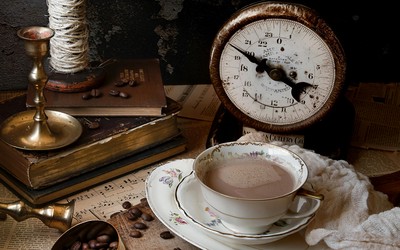
Playstyle. The thing they don't want you to understand.
Karpov said: “chess is an art, a science, a sport”. if these words are above all a praise of our beloved chess, it is necessarily possible to see something else in them: if chess is an art - it needs artists to create something, a science - scientists to hypothesize and refute - and a sport - high level intensity and intuition. you see where I'm going with this, the question of personality and style of play in chess. many people literally miss out on their potential and prefer to concentrate on things that are certainly important, but which could go further if the player also focuses on the question of playing style.What is a playstyle/ style of play?
Most people don't seem to care what a playstyle is. It's sad because you're missing out on something important to both you and the person you are on the chessboard and also for your confidence.
Most bloggers or coaches never bother to talk about this thing, it seems too vague for Cartesian minds like theirs. So let's leave the theory and refutations to them and appreciate the individuality of each player and the aesthetic beauty or the impressive Logic of the game, in Victory as in Defeat.
let's start the journey!
So, a style, (as defined by the Cambridge Dictionary), relates to art and fashion. style is an intellectual effect, of ideas. the style can be original or outdated. but style is above all a definition of a certain form of beauty, because style depends on aesthetics. how does this relate to chess?
In sports - or games, style is that unique and artistic side, that thing that impresses you, you can either love it or hate it, because style is never a matter of unanimity.
but I think that the proximity of psychology to chess changes the situation a little, because in this case, it is possible to put the styles in categories relating to a state of mind. in chess, there are therefore two types: style as such, a current of thought and idea, as in art. and playstyle, relating to psychology and a form of individuality. Therefore, Karpov's statement that chess is a sport, an art and a science is true.
The Logic and the Intuition, inspired by Jacob Aagard's table
Jacob Aagaard, one of the authors I admire the most, wrote that you could adjust your playing style according to parameters of intuition and logic, with 4 categories: Activists, Reflectors, Pragmatics and Theorists
the relationship between intuition and logic is very important. intuition is based on psychology, not on chance or superhuman talent as some might think, intuition is not that far removed from logic, since analysis is an extremely important point of both. logic, is based on acquired memory and again, the analysis of the position so that the player tries, through clever calculation, to succeed in achieving objectives.
I do not wish to contradict Aagaard's work, in any way, just a simplification by proposing a hypothesis which would perhaps be more accessible to amateurs below 2000, for whom intuition or logic are not the first things to think about : let's take Karpov's words again (chess is an art, a science, a sport).
art has always been a question of technical mastery which is transcended into an original work. transcended, it is the mixture between human feelings, feeling and intuition on the one hand, and technical background, control/mastery and analytical reflection on the other.
The artist, the scientist, the athlete
We can definitely talk about the art of chess when we look at Tal's games: having perfect theoretical mastery, he transcended the games with daring and original moves, including delirious sacrifices. all the necessary factors are there: aesthetics, originality, risk-taking... it might be a bit far to try to make the connection between that and Tal's life, but not impossible.
examples of "scientist", Carlsen, Botvinnik and Karpov.
positional players, who like to take advantage and muzzle the opposing position, players capable of developing complex strategies. a lot of theoretical logic and a great importance around the endgames. to a lesser extent, I would not be against adding Capablanca to the list, even if I don't think he would have wanted to define himself that way.
finally the "athletes" : Kasparov, Anand. a certain balance between intuition and logic, intense games, a very great aggressiveness in the game, particularly with Kasparov, in addition to their theoretical knowledge, they know how to strike the balance: without being over-intuitive who would have taken enormous risks, nor logic in the soul because they have an aggressiveness capable of annihilating opposing strategies. Of course, I'm not a fan of putting people in such boxes, but I was very inspired by this table from Aagaard. If this table is more informative to you, you are encouraged to consult it. my goal was just to make a simplification that would be accessible for players who don't have a great understanding of intuition and logic in chess.
How to find your style of play ?
therefore, you must understand that a style of play must be thought about and built over many years. above all, you don't change your style of play, if you are an offensive player who is extremely intuitive and an esthete like Tal, if you go to excessive prophylaxis and looking for micro-advantages, you will feel lost, and you will not be comfortable. you can try and persist for years, but aside from a lot of frustration, you'll be wasting your time. But what if you don't know what your playstyle is?
This is the question that I asked myself for a very long time, a question that I asked around me on Lichess to find out if some people would be better informed... I was surprised that they had never thought too much either to that. I therefore conclude that most coaches will not talk about that - on the one hand it makes the work more efficient, since theoretical learning is the basis of everything, but on the other hand, I would say that it will some players lacked potential. already knowing your style gives you confidence and makes you feel unique!
so ask yourself : what do I like about chess? This is the second question I asked myself after the one above. I understood that what I was looking for in chess was the balance between aesthetics and the "science" of positional and material micro-advantages. that the importance for me is the intensity of the game, the psychology, the offensive game. so, to be precise, my preferences for midgames and open positions, with a lot of space, made me lean more towards the intuitive side. later, I learned the importance of position and not just material gain, and I understood that I was very interested in positional play
Evolution
the important word is therefore, EVOLUTION. your style will evolve according to your theoretical knowledge and your practice, don't change anything if you are happy to play for the advantages, that endgames are your thing and that you are a pure logic nerd. evolving will therefore mean that you must put the maximum theoretical parameters on your side: learn openings where you will be comfortable and where there will be a lot of exchanges in the midgame, learn as much as possible the theory of endgame to trap your opponents. but don't go knocking on the door of intuition and monstrous sacrifices if you are not intuitive!
The exception !
there is nevertheless an exception: if you have a good theoretical and practical background, and you are comfortable in both endgames and sacrifices, it is because you have become a balanced player, and it will show in your ranking. therefore, it is not forbidden for such people to juggle between styles, even if they have a preferred style. such a thing can be useful in tournaments, to counter your opponent's preparation. but if you are looking for your style of play: don't run all over the country without a map, you will be lost. take a major path, and once you have a map and a compass, explore all the paths, even if only one leads to your house.

to finish
chess is a complex game, and the complexity of chess makes it interesting. there are billions of possible combinations. and the style of play will give you confidence and make you feel unique. your potential will develop and as I said earlier, you will feel the beneficial effects on your personality in chess.
biography :
(link to table and text by J. Aagaard)
http://www.qualitychess.co.uk/blog/1841
images found on pexels.com,
*I found images of old cars, (I like old cars!) there are brand names, but the site pexels.com offers free images for non-commercial use so there are no problem!
my thanks in advance for the work of this brilliant author whose books helped me progress and develop my knowledge and my passion for chess.
*this blog took me 6 whole days, it's perhaps the one I'm most satisfied with.

Thank you all, Happy New Year 2024 to all of you, best wishes on and off the chessboard, be happy and healthy, stay safe, greetings!
More blog posts by CSKA_Moscou

how to escape the infernal spiral of rating and addiction to fast random games
Yeah, worrying about a number is destructive. sooner or later you will behave like Gollum. But you c…
My advices to Improve your 'Vista' (Vision) in chess !
what do Pelé, Beckham, Beckenbauer, Iniesta have in common with Carlsen, Tal, Liren, Anand? in addit…
History of chess in cafés
hello everyone, this time I wanted to do a historical blog on an important subject in the history of…
